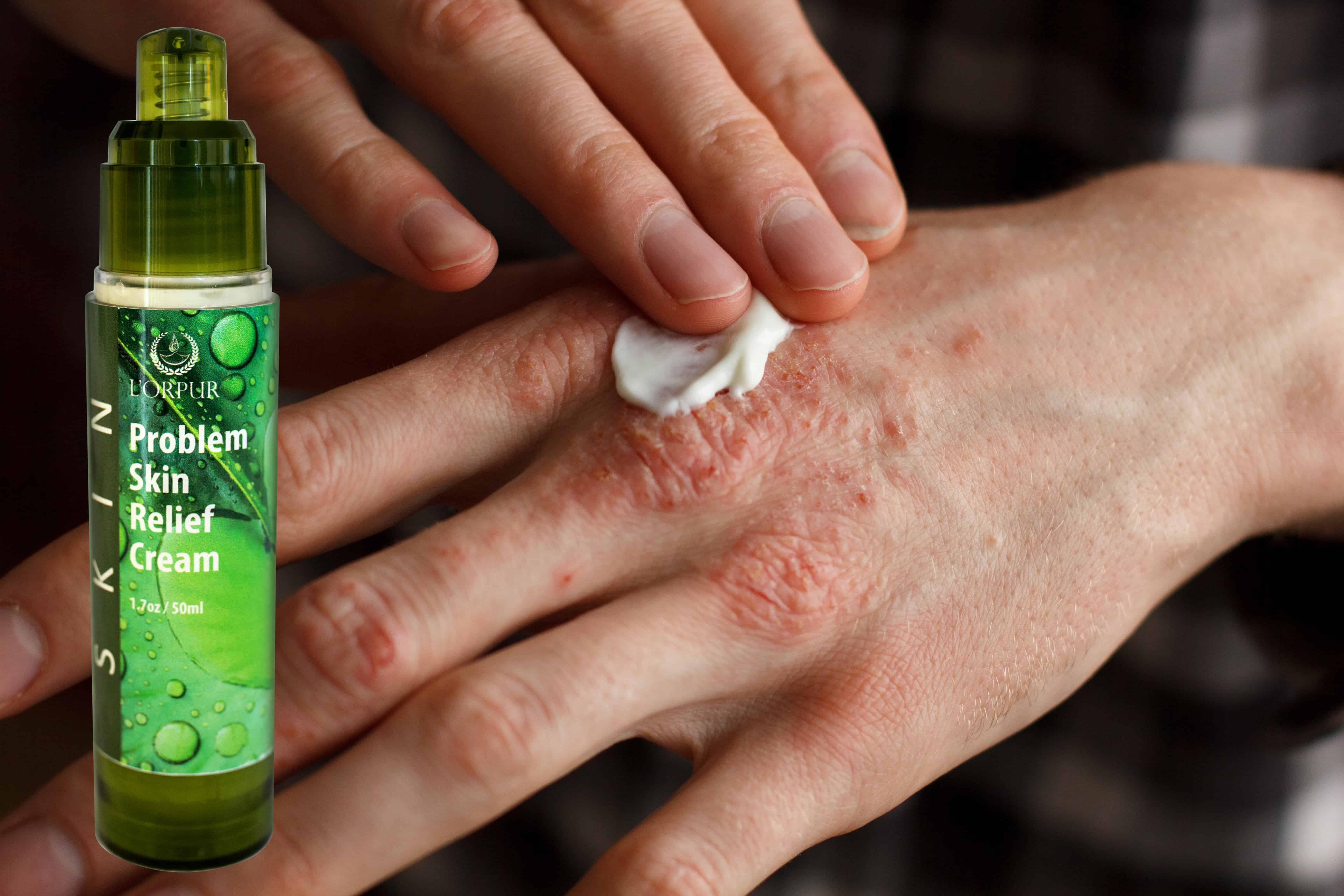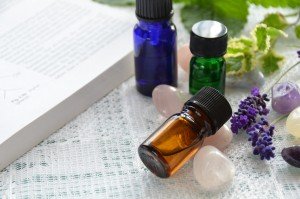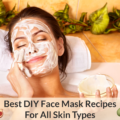Can You Use Essential Oils for Skin Conditions?
Skin is the biggest organ of the body. It’s the barrier between our bodies and our environments, and it absorbs various outside influences, many of which would be harmful to us otherwise. It is also an indicator of many internal problems within the body, such as nutritional deficiencies, infections, allergies, and funguses. This means that, while being a wonderful organ of our body, our skin will often have small or big ailments that cause us misery and that might be hard to treat. The good news is that Essential Oils are great for lots of skin issues.
Many Essential Oils have different beneficial effects on the skin, something that’s been proven in several scientific studies. The effectiveness of Essential Oils is shown even more extensively by the way that they are used in the commercial skin care and cosmetics industry. Many cosmetic product manufacturers have openly declared that they mainly depend on Essential Oils for the efficiency of their products. With that said, here is what you should know about the benefits of Essential Oils when it comes to treating issues related to the skin:
Key Essential Oils For Skin Health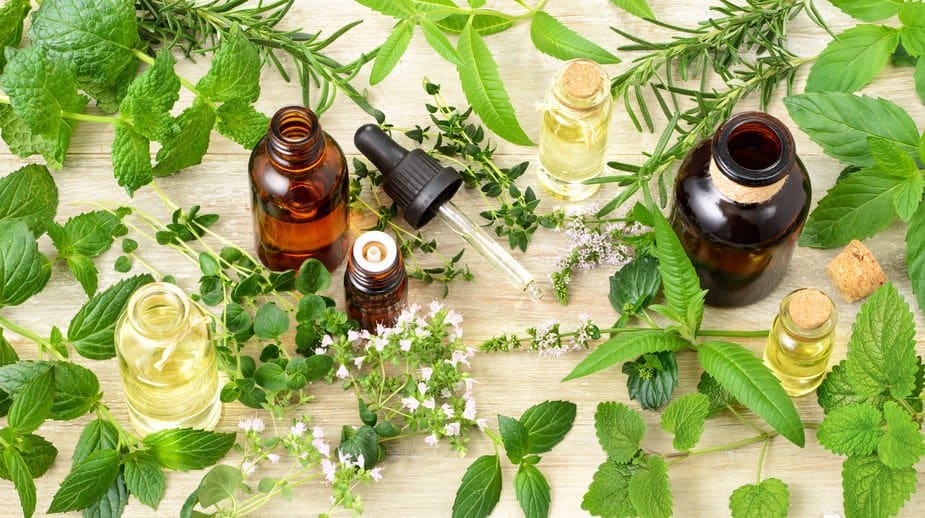
While Tea Tree, Geranium, Frankincense, Lavender, Oregano, Eucalyptus, Lemongrass, Rosewood and Geranium are the Essential Oils that are most commonly used in the treatment of issues related to the skin, there are some lesser-known Oils that have specific benefits for the skin. Here are some of them:
Helichrysum Oil
Helichrysum Essential Oil is extracted by steam distillation from the blossoms of the plant. It has a range of uses in skin care, from treating acne, removing cuts and scars, and acting against wrinkles.
Myrrh Oil
In aromatherapy, Myrrh Essential Oil is used for a number of skin conditions, such as eczema, fungal infections, as well as chapped and cracked skin. It is also used for promoting menstruation and for easing painful periods.
Carrot Seed Oil
Carrot Essential Oil helps treat a variety of skin conditions, including psoriasis and eczema. It rejuvenates skin and gives it elasticity, while smoothing out wrinkles. This Oil is also a potent detoxifier.
Rosehip Oil
Rosehip Essential Oil is primarily used for skin care. It has a wonderful effect of rejuvenating dry, damaged skin, removing wrinkles, and healing scars. However, it is not recommended for use on acne, or on Oily skin.
Key Carrier Oils For Skin Care
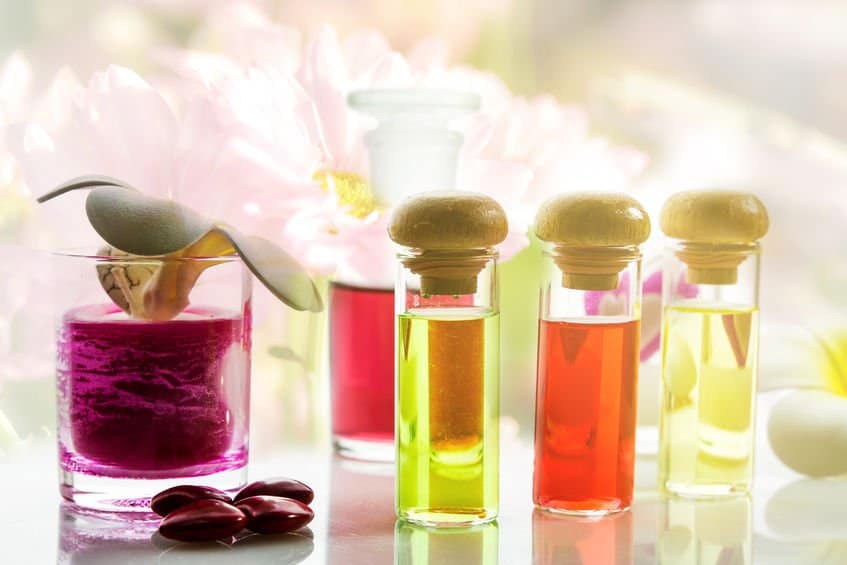
Essential Oils are usually blended with carrier Oils (or other carrier substances) before being applied to the skin. You have a choice of many diluting agents to use for various aromatherapy applications, however, when it comes to skin care, there are a few carriers that are useful and beneficial. Here are some of the best carrier Oils you can use in your skincare regimen:
Virgin Coconut Oil
Virgin Coconut Oil is great for any skin care use that calls for moisturizing. It has a unique combination of fatty acids that are believed to have antifungal, antibacterial, and antiviral properties. In addition, many people find that Virgin Coconut Oil has a nourishing effect on their skin.
Fractionated Coconut Oil
Fractionated Coconut Oil retains the moisturizing properties of Virgin Coconut Oil, and makes for a great carrier Oil. However, many people feel that Virgin Coconut Oil has additional health benefits.
Witch Hazel lotion
Witch Hazel lotion acts as an astringent, meaning that it tends to shrink or constrict body tissues such as skin pores. In addition, Witch Hazel lotion tends to reduce skin irritation and removes excess Oil from the skin. When used as a carrier for Essential Oils, witch Hazel Lotion is particularly useful in fighting acne.
Aloe Vera gel
Aloe Vera gel is not an Oil, but it can make a wonderful carrier for Essential Oils. It is well known to help soothe, moisturize, and heal skin. In addition, Aloe Vera gel is a great first-aid in case of burns.
The L’orpur Problem Skin Relief Natural Cream is designed to treat and prevent recurrence of difficult skin conditions including psoriasis, eczema, rosacea, acne, dermatitis, etc. It has unmatched anti-bacterial and healing properties and provides instant and long-lasting relief for red, itchy, scaly rashes as well as dry, flaky, peeling, red and irritated skin.
What Are The Best Essential Oils Recipes for Skin Disorders?
Essential Oils for Rosacea Treatment
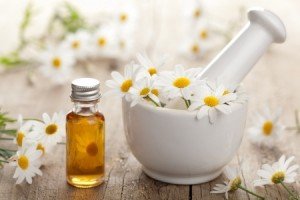 Rosacea can affect both the young and the old. While there are number of lotions and creams available in the market that can help for a while, but many will not give you a permanent cure. Uncontaminated, healing grade Essential Oils when used directly on the epidermis or combined with jojoba or sweet almond carrier Oils can render amazing relief in Rosacea. The best Essential Oils you can use for the treatment of rosacea include Eucalyptus, Lavender, Sandalwood, Cedar, Chamomile and Frankincense and Tea Tree Essential Oil.
Rosacea can affect both the young and the old. While there are number of lotions and creams available in the market that can help for a while, but many will not give you a permanent cure. Uncontaminated, healing grade Essential Oils when used directly on the epidermis or combined with jojoba or sweet almond carrier Oils can render amazing relief in Rosacea. The best Essential Oils you can use for the treatment of rosacea include Eucalyptus, Lavender, Sandalwood, Cedar, Chamomile and Frankincense and Tea Tree Essential Oil.
Essential Oils for Ringworm Treatment
The antifungal and wound healing properties of Essential Oils make them an important part of any standard ringworm treatment regimen. Most of the promising remedies involve the use of Oils such as Tea Tree and Neem Essential Oil. These Oils are known to be effective at treating problems like athlete’s foot (ringworm of the feet) if used religiously for a period of one month.
I have more details for you here, simply go to the best Essential Oils for ringworm relief.
Essential Oils for Skin Cancer Treatment
When it comes to the treatment of skin cancer, Essential Oils have been shown to be tremendously useful. The anxiety and sleepiness associated with skin cancer can easily be reduced by the use of Essential Oils. The best Oil to use for skin cancer is Frankincense, which must be topically applied over the lesions for a period of four months. Use of Essential Oils for the treatment of skin cancer can also save you from the long lasting side effects of invasive treatment procedures.
Essential Oils for Acne Breakouts Treatment
Acne is the most common skin condition that people suffer from. It is caused by Oil buildups in pores around hair follicles, and infections that occur as bacteria feed on this Oil.
If you want more information the best Essential Oils recipes for the treatment of acne breakouts including the top 25 recipes for acne treatment, I have you covered.
What you’ll need for this recipe:
- Fractionated Coconut Oil
- Tea Tree Essential Oil
- Oregano Essential Oil (optional),
- Rosewood Essential Oil (optional),
- Geranium Essential Oil (optional),
- Eucalyptus Essential Oil (optional),
- Lemongrass Essential Oil (optional).
How To Use These Essential Oils To Treat Acne Breakouts?
First of all, if you are using a blend, mix equal parts of all the Oils, 1-2 drops, depending on how much you need. Then mix the Oil or the blend with a carrier Oil. I recommend you use fractionated Coconut Oil, though some people have also used the whole, Virgin Coconut Oil with good effect. Use a 2% dilution, meaning 2 drops of the Oil or blend in a teaspoon of the carrier Oil.
Apply this to your skin after you’ve washed it in the morning and in the evening. You can keep applying these Essential Oils until the acne is gone. Simply let the blend absorb into your skin, as there’s no need to do anything else or to wash the blend off.
Balance Oily skin
There are multiple Essential Oils that can balance Oily skin. I’ve got two recommendations below: a simple blend of two Essential Oils, as well as a more complex facial toner that you can use to replace store-bought cosmetics.
Option 1
What you’ll need:
- Fractionated Coconut Oil.
- Tea Tree Essential Oil,
- Rosemary Essential Oil.
Both Rosemary and Tea Tree are well-known to reduce excess oiliness of the skin. For this recipe, use 1 part Rosemary Essential Oil to 3 parts Tea Tree Essential Oil. Combine this with the fractionated Coconut Oil in a 2% dilution.
Option 2
What you’ll need:
- Aloe Vera gel
- Witch Hazel lotion,
- Ylang Ylang Essential Oil,
- Juniper Berry Essential Oil,
- Lemongrass Essential Oil.
This is a fancier recipe that emulates store-bought lotions for Oily skin, giving you a pleasant-smelling blend with balancing and naturally astringent properties. Combine 12 drops Lemongrass Oil, 6 drops Juniper Berry Oil, 2 drops Ylang Ylang Oil, 1 ounce of witch hazel lotion, and 1 ounce of Aloe Vera gel. Again, since you will be making a larger quantity, make sure you store this lotion in a glass jar, rather than in plastic. You can use this mix regularly as part of your daily skin care protocol.
Soothe Dry Skin
If you find that you have sensitive, dry skin that tends to get irritated easily, then this recipe is for you.
What you’ll need:
- Myrrh Essential Oil,
- Virgin Coconut Oil.
Make a lotion using a 2% dilution of the Myrrh Essential Oil in the Virgin Coconut Oil. For example, mix 12 drops of Myrrh Essential Oil in an ounce of melted Virgin Coconut Oil. Use this lotion liberally as you need it. The combination of Myrrh and the Coconut Oil should moisturize and nourish your skin better than most commercial products that you’ve tried using.
How to Use Essential Oils to Recover From Sunburns?
It seems inevitable that I get sunburned once or twice a year. I always underestimate the brightness of the sun or how long I will be out there, and I then wake up the next morning with a burning face and sore skin on my shoulders. Well, I’m happy to tell you that a very simple, Essential Oil preparation can work miracles with sunburns.
What you’ll need:
- Lavender Essential Oil,
- Aloe Vera gel.
Combine 20 drops of Lavender Oil with 4 ounces of Aloe Vera gel. Dab this on to the sunburned skin as often as you need until your sunburn heals. You can also use Aloe Vera juice, which is more liquid than the gel, and in that case, you can put the whole mixture in a spray bottle and spray it on. If you don’t have Aloe Vera juice, you can mix the Lavender and Aloe Vera gel with some water until it becomes liquid enough to be sprayable.
How to Use Essential Oils to Remove Stretch Marks?
As with other kinds of scarring and discoloration of the skin, several Essential Oils can help with stretch marks.
What you’ll need:
- Virgin Coconut Oil,
- Helichrysum Essential Oil,
- Geranium Essential Oil,
- Frankincense Essential Oil,
- Lavender Essential Oil.
Combine 4 drops of each Essential Oil with an ounce of Virgin Coconut Oil. Apply this blend to the stretch marks daily. You might have to apply this blend for a while before you see improvements, but the nourishing and anti-inflammatory nature of the blend should ultimately give you good results.
How to Use Essential Oils to Clear Up Sunspots?
Sunspots, also known as liver spots or aging spots, occur past a certain age when the body is no longer as good at recovering from the damage that UV radiation causes.
What you’ll need:
- Virgin Coconut Oil,
- Myrrh Essential Oil,
- Lavender Essential Oil,
- Frankincense Essential Oil.
Combine equal parts of each Essential Oil in a 2% dilution of the Virgin Coconut Oil. If you will be making a larger quantity that you can reuse later, combine 8 drops of each Oil and 2 ounces of the Coconut Oil, and store this in a glass jar. Apply this mixture to the area with sunspots daily. This blend should promote healing and rejuvenation of the affected skin, and eliminate the darker pigmentation.
How to Use Essential Oils to Relieve Itchy Skin?
Many different things can cause itchiness, for example, dry or irritated skin, allergies, or fungal infections. While you should ultimately seek to fix whatever is causing the itchy skin, it might be some time before you can identify what the problem is, and in that case, treating the symptoms can be a lifesaver.
What you will need:
- Fractionated Coconut Oil,
- Peppermint Essential Oil,
- Lavender Essential Oil.
Take an ounce of Almond Oil and add 3 drops of Peppermint and Lavender Essential Oil each. Gently spread this mixture over the effected region. This will relieve the itching and prevent the further breakouts.
How to Use Essential Oils to Eliminate Bags Under The Eyes?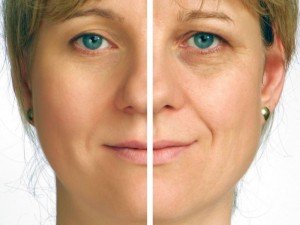
Bags under the eyes can be caused by different factors: fatigue, water retention, even a lack of exercise. It’s best to address those underlying causes directly, but at the same time, Essential Oils can help reduce this swelling as well.
What you’ll need:
- Virgin Coconut Oil,
- Cypress Essential Oil.
Cypress Essential Oil is a powerful astringent and diuretic that should help combat the swelling. Combine 2 drops of cypress Essential Oil in a teaspoon of melted Virgin Coconut Oil. Apply this to the skin under your eyes at night before going to bed. Make sure not to get the mixture in your eye, as this can be extremely irritating and painful.
How to Use Essential Oils to Treat Eczema and Psoriasis?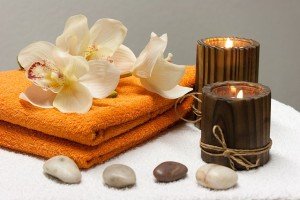
Eczema is a name applied to an inflammation or a rash on the skin, which is characterised by red, itchy patches. There are a couple of recommended Essential Oil protocols to relieve these kinds of symptoms, and they can be applied both in cases of Eczema and Psoriasis.
Option 1
What you’ll need:
- Fractionated carrier Oil,
- Tea Tree Essential Oil,
- Oregano Essential Oil.
Combine 3 drops Oregano and 9 drops Tea Tree Oil in an ounce of fractionated carrier Oil. Put this in a spray bottle and spray the area where your skin displays the rash several times each day until the symptoms subside.
Option 2
What you’ll need:
- Virgin Coconut Oil,
- Tea Tree Essential Oil,
- Geranium Essential Oil,
- Frankincense Essential Oil,
- Lavender Essential Oil.
Combine 1 drop of each Essential Oil in two teaspoons of melted Virgin Coconut Oil. Apply the blend over the affected area several times each day, until the rash goes away.
Using Essential Oils to Fight Fungal Infections On The Skin
Various fungal infections can cause red, flaky, itchy skin. Fortunately, Essential Oils are extremely good at taking care of fungal infections, and this has even been proven in several scientific studies.
What you’ll need:
- Oregano Essential Oil,
- Fractionated Coconut Oil,
- Tea Tree Essential Oil,
- Lavender Essential Oil.
Add 1 drop of each of the three Essential Oils to 2 teaspoons of fractionated Coconut Oil. Apply this blend to the affected area twice a day for as long as the rash or inflammation persists.
Some Pros And Cons Of Using Essential Oils For The Treatment Of Skin Related Conditions
Pros
- Using Essential Oils is an all-natural approach that is far less invasive than using products carrying artificial ingredients and chemicals.
- Essential Oils offer permanent relief and the problem doesn’t come back again
Cons
- Some of the Essential Oils might worsen the condition, especially if you have a sensitive skin. So, make sure that you conduct a patch test on your arm before using the Essential Oil liberally on your body.
While using Essential Oils can be highly effective in treating skin conditions, it might take some patience and experimentation to find out what works for you. I have tried my best to give you an overview of the approaches that have worked for me and other people as well, but it is necessary for you to have a clear starting point in case you have never used Essential Oils or don’t have a wide range of different Essential Oils at home. When it comes to treating skin conditions, a little bit of common sense goes a long way.


